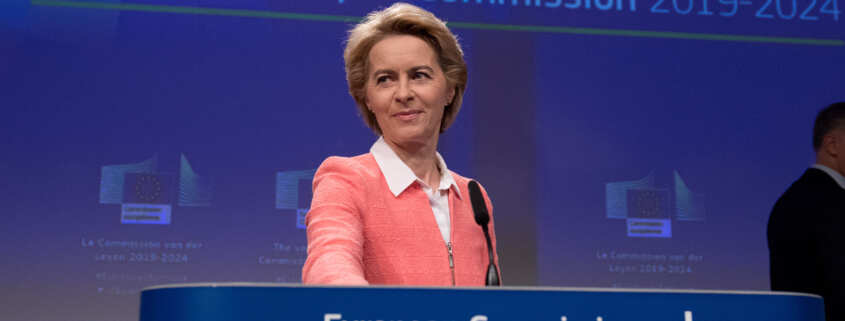Sustainable Leadership for the new Commission: setting the EU (back) on track
The new European Commission proposed by President-elect Von der Leyen has rightly identified climate change mitigation and adaptation as key issue, but leaves doubt about the sustainability of important aspects of the executive leadership structure and mission. Managers will closely monitor if the Commission delivers on its bold ambitions, particularly on employment and social affairs.
European Commission President-elect Ursula von der Leyen has presented her new (almost) gender equal leadership team yet to be approved by the European Parliament. The new College will have three Executive Vice-Presidents, five Vice-Presidents and 18 other Commissioners. While the priority of building an environmentally, socially and economically sustainable Union has to be welcomed, some of the portfolios of future Commissioners leave doubt about the sustainability of the executive leadership structure and mission, as set out in CEC’s guidelines for managers and executives and the newly launched #ManagersForFuture campaign.
To succeed in building a socially just, economically lasting, biodiverse and net-zero future, the incoming Commission will have to holistically tackle the multiple challenges while not forgetting its moral compass of freedom, solidarity and sustainability. Furthermore, the Commission will need to tightly liaise and deliberate with social partners, civil society and businesses fit for the future to gain democratic legitimacy. A positive approach to tackle the latter will be particularly important, as outlined by CEC President Ludger Ramme.
When it comes to climate, the nomination of Frans Timmermans, a political heavyweight, as Executive Vice-President sends a strong signal of commitment to European citizens and international partners. However, related portfolios like Energy, Innovation and Environment & Oceans will need to be considered for fruitful policy synergies to tackle global warming and biodiversity loss.
The choice of calling the employment and social portfolio simply « Jobs » is a change compared to the Juncker Commission’s work towards a more social Europe, namely through the introduction of the European Pillar of Social Rights. We hope that not merely the quantity of jobs, but also the quality of employment, labour relations and social security contributions will be considered for the future of the European social market economy.
As far as digitalisation is concerned, it will be covered by the “Europe Fit for Digital Age” portfolio. Another portfolio of « innovation and youth » has been proposed, which is likely to cover DG Research and Innovation, but also DG Education, Youth, Sport and Culture. Considering the high importance for the European academic landscape and industry, this portfolio leaves doubt about the benefit of merging youth and innovation. Lastly, the European youth should be actively involved in shaping a renewed European Union, since it will be them inheriting the consequences of our current decisions.
Finally, the choice of the denomination of some portfolios is somewhat questionable, especially concerning the newly created “protection of EU way of life”, which is essentially focused on migration and security policies. Of course, it’s still early to judge and we’ll have to wait until the Commission enters into full action, so we will get back to the issue at a later stage.
Picture: copyright European Union 2019



